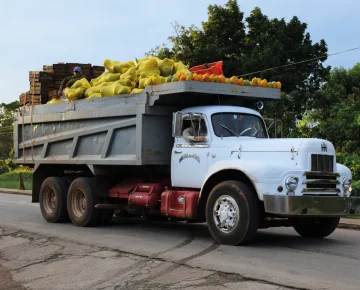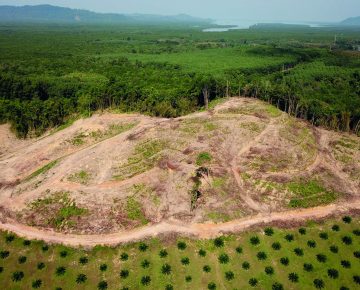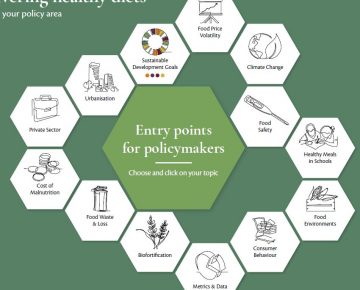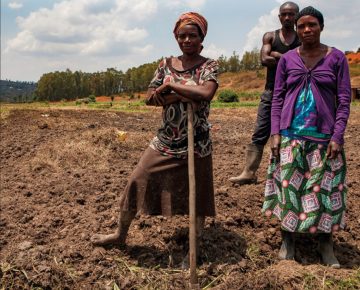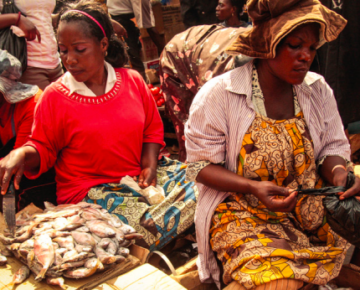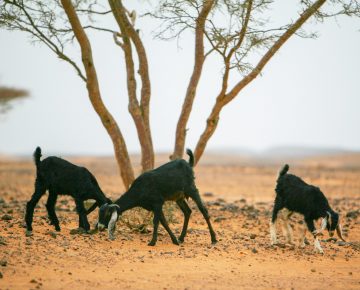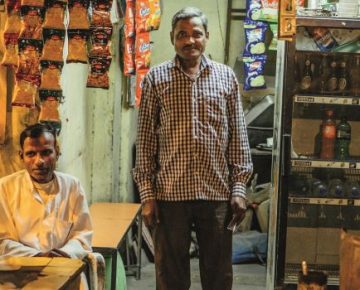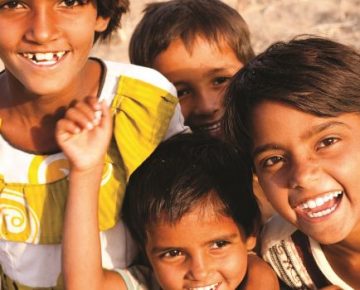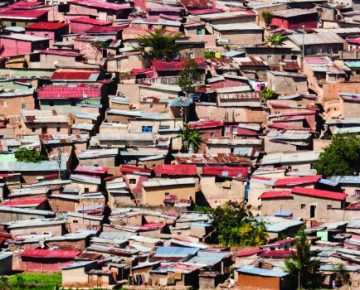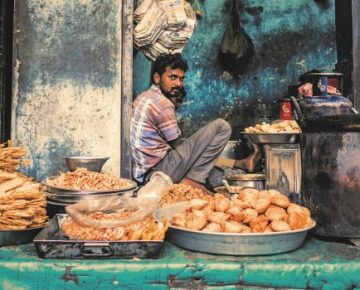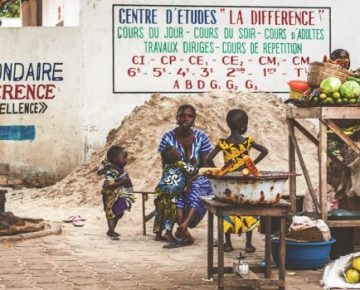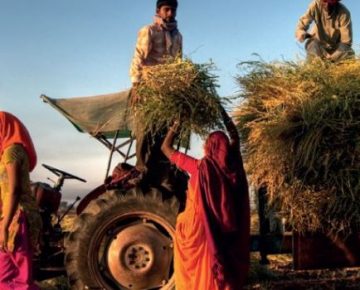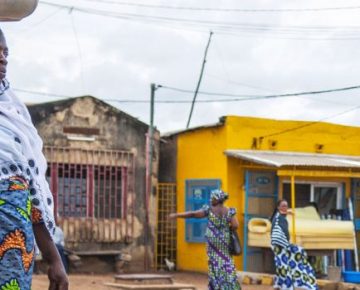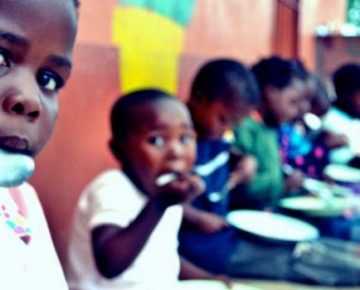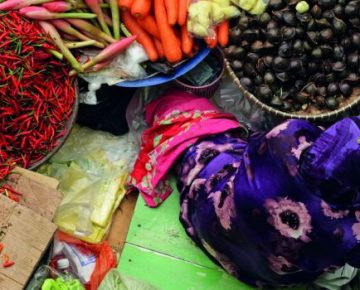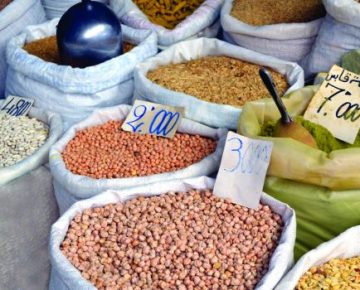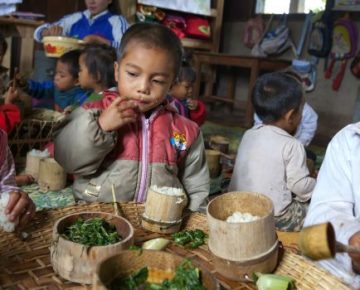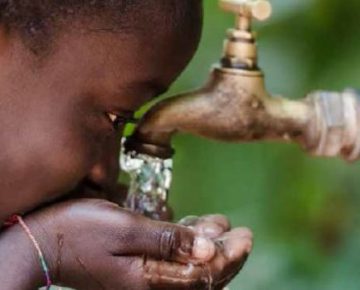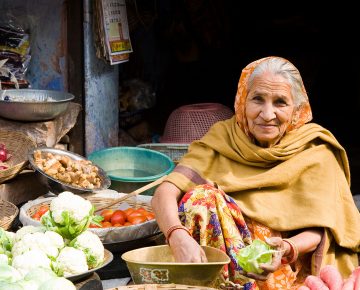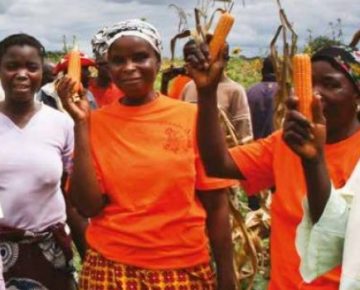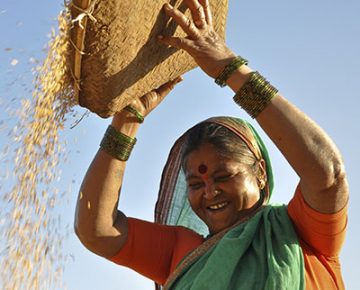Briefs
The Global Panel's influence is delivered through evidence-based technical and policy briefs and tailored country/regional papers. These documents contain recommendations for potential policy interventions at a national and regional level.
Pursuing food systems transformation despite financial constraints
This brief sets out a diverse range of actions that are relatively low-cost, or even cost-neutral to transform food systems and provide a solid and substantial foundation on which to build a broader coherent strategy.
Food systems and planetary goals: two inseparable policy agendas
The brief presents evidence to show how food systems have no viable future without delivering on climate change and planetary goals.
Transformation and Future of Aquatic Food Systems in Nigeria
This brief makes a range of recommendations to address the critical challenges facing the aquatic foods and aquaculture sector in Nigeria. It is an outcome of the National Dialogue on Transformation and Future of Aquatic Food Systems held in Nigeria in 2021.
Food Systems and Diets: A Handbook of Essential Policies
Food Systems and Diets: a handbook of essential policies. The Handbook is an accumulation of the Global Panel’s policy briefs to date, and aims to provide a body of knowledge on how food systems can influence the production and consumption of safe, affordable and healthy diets.
Exploring Potential Benefits of Repurposing Agricultural Subsidies in sub-Saharan Africa
This brief aims to inform the debate around rebalancing and repurposing agricultural subsidies and fiscal resources in sub-Saharan Africa so that they can better contribute to both human and environmental health.
Policy Tool
The Food Systems Policy Tool helps policymakers in LMICs prioritise actions to transform their Food Systems, promote a healthy diet, and deliver on the UNFSS pledges made.
Repurposing agriculture support to improve nutrition, health, and the environment
This discussion paper looks at the potential role repurposing agricultural support could play in promoting both human and planetary health. Drawing on recent modelling, it examines the impacts various scenarios in which subsidies are removed or reallocated, and how modelling can help inform decision making.
Harnessing aquaculture for healthy diets
This brief sets out the contribution that aquaculture can make to healthy diets and resilient food systems. It provides guidance for policymakers as they consider decisions related to the expansion of aquaculture, balancing issues related to diets and food security, economic growth and employment, and the environment.
Fragile Contexts
This policy brief seeks to stimulate international organisations, governments, and other stakeholders, to realign policies within fragile contexts to ensure that diet and nutrition are improved, whilst also building more sustainable, resilient food systems.
COVID-19
The brief focuses on the profound impacts the pandemic has already had on food systems and people’s diets during 2020. It sets out key decisions and actions which are needed to ensure food systems can continue to function effectively, recover quickly from the present crisis, and build resilience for the future.
Trade
This brief seeks to encourage policymakers to include trade instruments as a part of a portfolio of actions to address sub-optimal diets. It sets out a framework of issues for policymakers to consider in order to improve diets when developing new trade policies.
Food loss & waste, and nutrition
This brief shows that a reduction in food loss and waste, particularly in high nutrient foods, has the potential to yield substantial nutritional benefits, contributing to the achievement of the SDGs.
Private sector
This brief seeks to stimulate governments and other stakeholders to help build strategies to incentivise the private sector to influence food systems in ways that will improve the food environment.
SDGs
This brief is a call to action for policymakers at all levels to recognise the central role of high-quality diets and nutrition in achieving the 2030 Agenda for Sustainable Development.
Urbanisation
This brief explores the deepening crisis of urban malnutrition in low- and middle-income countries and the forces that drive it.
Consumer behaviour
This brief looks at consumer-based factors that influence the consumption of high quality diets.
Food environments
This brief provides recommendations for action that affect supply dynamics of the food system, aimed at both public and private sector actors.
Nutrition for Growth II
This brief provides information and advice to help policymakers invest in effective policies to reduce all forms of malnutrition.
Cost of Malnutrition
This brief calls for more attention to the costs of inaction and urges policymakers to invest in nutrition and in actionable food and agriculture policies.
Economics of malnutrition
This working paper was commissioned in advance of the African Leaders for Nutrition Initiative to highlight why investing in nutrition is important from an economic perspective.
Food safety
This brief reviews food safety issues that are critical to poor and vulnerable populations in low- and middle-income countries.
Food price volatility
This brief identifies policy interventions that can anticipate and mitigate the negative dietary and nutritional outcomes of price volatility and market uncertainty.
Healthy meals in school
This brief explains why a greater policy emphasis is needed on the multiple-win outcomes of healthy meals in schools.
Metrics and data
This brief argues that improved metrics and data are needed for effective food system policies in the post-2015 era. It is aimed at analysts, statistical experts and decision makers who use evidence to guide their policy choices.
Climate change
This brief explains the challenges of meeting agricultural and nutritional needs in the face of climate change. It identifies policy opportunities to enhance food and nutrition security.
Biofortification
This brief lays out the technical evidence and arguments for supporting biofortification as one element of a nutrient-sensitive national agricultural research and investment strategy.
Nutrition
This first technical brief describes the breadth of policies relating to agriculture and food systems that influence nutritional outcomes, and opportunities for improvement.

